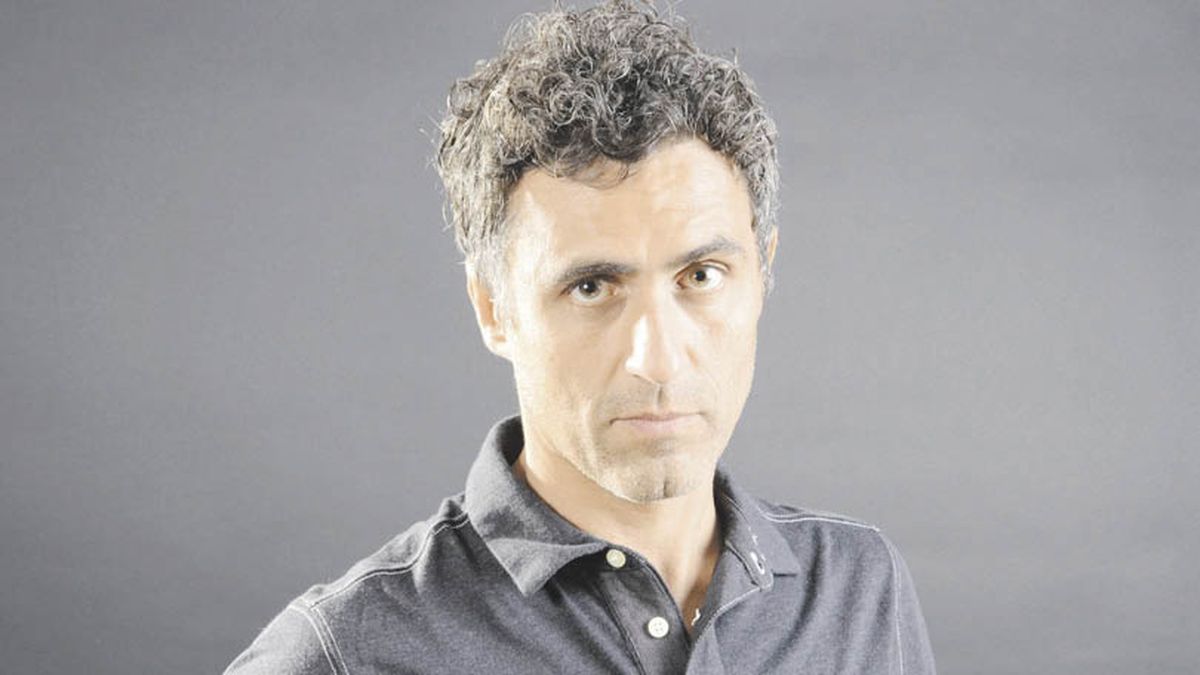Journalist: What is the NOS group?
Martina Cabanas: It is a subversive and anti-system group that aims to overthrow the established order, overthrow the status quo, and cause social change on a global level. So like any subversive movement, even within a democracy, it meets clandestinely.
Q.: What attracted you to the proposal?
Federico Buso: It is something different from what is usually seen in theater and nobody knew how it could work, not even the director. I had that risk of things that I like when facing new projects. As actors, you have to find the tone well so that the public understands, because it generates discomfort in the audience. We try to show the groups, the ideas, and that people understand where they are going. The end is clarifying, in case there is any doubt that this is a satire. I’m at a stage where doing things that don’t convince me doesn’t make sense, so I’m guided by risk in my artistic search. Thanks to the fact that the director obtained a subsidy from Iberescena she was able to travel to Buenos Aires, she stayed 40 days, we rehearsed from Monday to Saturday to get her out and there is something that accumulates in that vertigo of rehearsals that is very good.
Q.: Do the totalitarian tendencies that appear mirror some of the present?
Federico Buso: References to present and past totalitarianism appear in the work and he even plays to imagine other futures. In fact, just after the premiere of the work Meloni won in Italy and we received several messages on the networks treating us as visionaries. History is doomed to repeat itself and the breeding ground for totalitarianism has always been crises. All totalitarianisms, no matter how different they may be, persecute and fear critical thinking and the work tries to revive it. It is always reflected from a humorous point of view in a comedic tone.
Q.: What place do aesthetics and art play?
Martina Cabanas: Fascism wins on aesthetics, so we try to play on that. Throughout history, the capacity of art, symbol and ritual as an instrument of mass manipulation has been useful to the system, but always with the distancing of laughter. Somehow Albert Speer’s cathedral of light transferred great power and security to the Nazis even before they came to power or, as Woody Allen says, in one of his films “I don’t go to see Wagner operas because I feel like watching them.” invade Poland. In a more modest way, in this first meeting the characters in the play try, through fire, flags and live cello, to create their own aesthetic. I think the distancing of humor avoids the viewer’s discomfort.
P.: The verse sometimes distances the viewer. What happens here?
Martina Cabanas: The verse is a counterpoint to the show that allows the characters to reveal their most intimate, crudest thoughts, their inner monologue. Through rhythm and words they show their most secret motivations to defend the whole ideology of NOS. Instead of alienating the audience, the rhythm brings them closer in a sensory, direct, and almost tribal way to the characters.
Q.: How is the schedule for Espacio Callejón, one of the most important theaters on the independent scene in Buenos Aires, laid out?
Federico Buso: It is scheduled a year in advance and the variety, quality and risk of the proposals are taken into account. In the case of El Callejón, we returned to the same audience ratings as before the pandemic. Something that favored is the advance sale of tickets that commits people to go to the theater. Before reservations were made and at the time of the function, half attended.
Source: Ambito
David William is a talented author who has made a name for himself in the world of writing. He is a professional author who writes on a wide range of topics, from general interest to opinion news. David is currently working as a writer at 24 hours worlds where he brings his unique perspective and in-depth research to his articles, making them both informative and engaging.




